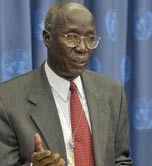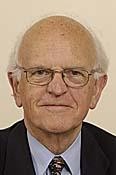Rutgers University, Newark, Programs Examine Prevention and Remembrance of War, Massacre, and Genocide
Conference in March,Talks in April, Focus on Silence, Denial, Prevention
Upcoming public programs at Rutgers University, Newark, will examine chilling modern examples of humanity at its worst as well as attempts to avoid their forgetting and re-occurrence. All programs are free and sponsored by the Center for the Study of Genocide, Conflict Resolution and Human Rights at Rutgers University, Newark ( http://cghr.newark.rutgers.edu/).
Next month the Center will co-sponsor a two-day international conference on “Forgotten Genocides: Silence, Memory, Denial,” http://cghr.newark.rutgers.edu/conference_home.html , on March 28-29, held in partnership with the Center for Peace, Justice, and Reconciliation at Bergen Community College, Paramus. The March 28 evening session will be at Bergen Community College, while the main session on March 29 is at Rutgers University, Newark. The first day of the conference will discuss “Why the Armenian Genocide Was Forgotten: Turkish Conceptions of National Security and History.” The second day at Rutgers will include talks on the Holocaust, the Ottoman genocide of Armenians, Assyrians, and Pontic Greeks, the Circassian genocide, and the Ukrainian genocide, all of which are expect to attract audiences fr

The conference will be followed in April by two individual programs at Rutgers, Newark. An April 12 lecture will look at “Genocide Prevention in the Sudan,” from 4- 5 p.m., in the Dana Room, John Cotton Dana Library, 185 University Ave., Newark. The speaker is Francis Deng, the United Nations Secretary General’s Special Adviser on the Prevention of Genocide. The mission of his office, according to the UN, is to “raise awareness of the causes and dynamics of genocide, to alert relevant actors where there is a risk of genocide and to advocate and mobilize for appropriate action.
On April 13, “Human Rights in Chechnya” will be the topic of The Honorable Lord

Here is the schedule for “Forgotten Genocides: Silence, Memory, Denial.”
FORGOTTEN GENOCIDES: SILENCE, MEMORY, DENIAL
MONDAY, MARCH 28, BERGEN COMMUNITY COLLEGE, RECITAL ROOM,
WEST HALL, 400 PARAMUS RD., PARAMUS
7:15 p.m., Why the Armenian Genocide Was Forgotten: Turkish Conceptions of National Security and History: Taner Akcam, Clarke University, Iowa
TUESDAY, MARCH 29, RUTGERS UNIVERSITY, BOVE AUDITORIUM,
ENGELHARD HALL, 190 UNIVERSITY AVE., NEWARK
8:35 a.m., Panel I: Forgettings and Rememberings
Chair: Erica Lehrer, Concordia University, Canada
· Hidden Genocides: Power, Knowledge, Memory: Doug Irvin and Alex Hinton, Rutgers University; Tom LaPointe, Bergen Community College
· Thinking Beyond the Binary Model: National Security Doctrine in Latin America as a way of Rethinking Genocide as a Social Practice: Daniel Daniel Feierstein, Universidad Nacional de Tres de Febrero (TREF), Argentina
10 a.m., Panel II: Identity and Difference
Chair: Aldo Civico, Rutgers University
· Cambodian-Canadian Inspirational Tales of Survival: Treading the Margins of Remembering and Forgetting Genocide Suffering: Carol Kidron, University of Haifa, Israel
· What the Law Does Not Recall: Repair, ‘Historical Reality,’ and the Legal Order in the Czech Republic: Krista Hegburg, United States Holocaust Memorial Museum
11:30 a.m., Session III: Power, Resistance, and Indigenous Peoples
Chair: Sean Mitchell, Rutgers University
· Indian Residential Schools in Canada: The Issue of Genocide and Public Policy:
Frank Chalk, Concordia University, Canada
· Nits Make Lice: Genocide and the Destruction of Indigenous Peoples of the United States: Chris Mato Nunpa, Southwest Minnesota State University
· Remembering Benevolence, Forgetting Genocide: The Stolen Generations in Australia: Donna-Lee Frieze, Deakin University, Australia
2:30 p.m., Panel IV: Power, Knowledge and Memory
Chair: Isaias Rojas-Perez, Rutgers University
· Has the Holocaust Helped Us Remember or Forget Genocides? Dirk Moses, European University Institute, Italy
Constructing ‘The Armenian Genocide’: How Genocide Scholars Unremember the Assryian and Greek Massacres and Deportations of 1914-1923: Hannibal Travis, Florida International University
4 p.m., Panel V: Memory, Silence, and Denial
Chair: R. Brian Ferguson, Rutgers University
· The Great Lakes Genocides: Forgotten Histories, Forgotten Precedents: Adam Jones, University of British Columbia Okanagan, Canada
· Forgetting Genocide Before It Happens: Genocidal Categories and German Political Culture Before World War I: Elisa von Joeden-Forgey, University of Pennsylvania
5:15 p.m., Panel VI, Museum Exhibition
Chair: Nela Navarro, Rutgers University
From a “Crime without a Name” to “Genocide”: The Simele Massacre of Assyrians, Iraq, August 1933: Igor Kotler, Museum of Human Rights, Freedom, and Tolerance
7 p.m., Panel VII: Hidden Genocides
Chair: Alex Hinton, Rutgers University
· Circassia: A Small Nation Lost to the Great Game: Walter Richmond, Occidental College, California
· The Ukrainian Genocide: Why Marxist Genocide Scholars and Journalists Ignore and then Deny Genocides Committed by Marxist-Leninist Regimes: Greg Stanton, George Mason University, Virginia
GETTING TO RUTGERS
BY MASS TRANSIT: Rutgers-Newark can be reached by New Jersey Transit buses and trains, the PATH train and Amtrak from New York City, and by the Newark Light Rail, Washington Street Station or Broad Street Station.
BY CAR: Rutgers-Newark can be reached by the Garden State Parkway, New Jersey Turnpike, Routes 95, 21, 78, and 280, and the Lincoln and Holland tunnels. Metered parking is available on University Avenue. Other parking: Rutgers-Newark’s parking garage (200 University Ave.) or the Bradley Hall Lot. Printable maps and driving directions at: www.newark.rutgers.edu/maps/index.php
Media Contact: Carla Capizzi
973/353-5263
E-mail: capizzi@rutgers.edu